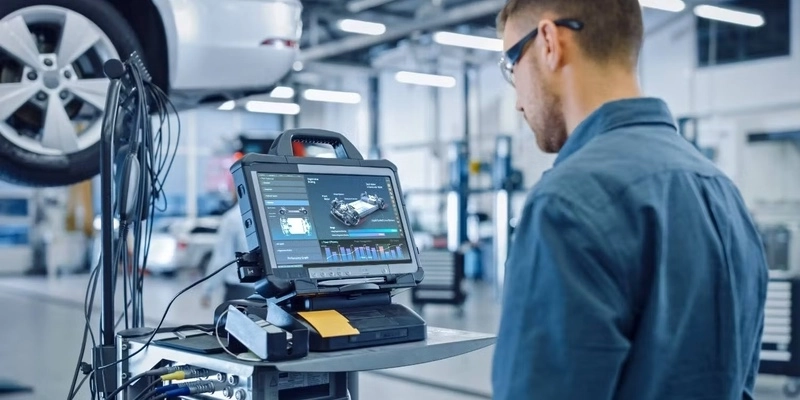At the core of the challenges facing the battery recycling industry today are key aspects such as “sustainability, technological innovation, and safety.”
In this regard, David Santiago, CEO of TERA Batteries Recycling, explains to Mobility Portal España:
“What is needed are solutions that allow the reuse and recycling of battery components to reduce the environmental impact and make the most of the materials already used.”
One of the most relevant demands of customers in this area is the guarantee that the reconditioned cell will maintain optimal performance.
“The end user expects the repaired battery to have a service life that meets expectations and ensures that it will continue to function effectively after the reconditioning process,” he explains.
Economic accessibility is also presented as a key factor, along with safety in the use of recycled products.

What could be the solution? The digital battery passport.
This, regulated by European Regulation 1542, which will come into force on February 18, 2027, will establish an electronic registry for all cells introduced into the European market.
“The more traceability there is in the product, the better it will be for us, as it allows for better management and maintenance of the batteries,” Santiago points out.
The battery passport will include crucial information about the battery, such as its composition, manufacturing process and charging data, facilitating responsible recycling and promoting efficient second use.
The regulations seek, among other objectives, to evaluate their sustainability.
“Traceability is essential in our industry, where the information we manage is fundamental to offering an adequate service,” he says.
However, the CEO of TERA Batteries Recycling warns that the challenge will lie in how to integrate the digital platforms of the different companies.
“The passport is nothing more than a QR code, but its usefulness will depend on how the data is interrelated in the value chain,” he says.
In addition, it will be necessary to consider how companies’ digital systems and platforms will be linked to the public entity.
The Battery Pass will be mandatory for all electric and plug-in hybrid vehicles with more than 2 kWh of capacity.
Although the standard comes into force in 2027, there are already brands that are beginning to implement similar systems.
For example, the Volvo EX90 model will include real-time cell status information, which could set a precedent for the industry.
David Santiago acknowledges that while it is positive that some producers are beginning to adopt the digital passport, there are also concerns about the accessibility of records.
“As repairers, we often find that the information we need is not provided by manufacturers,” he says.
Lack of transparency in cell technical data can hamper the work of repair shops, which require access to precise details to offer quality service to their customers.
In this context, the passport will provide them with valuable access to data that will facilitate the installation, repair and recycling of these components.
“What we want is to guarantee a service to the consumer who is still a user of a car brand,” Santiago emphasizes.
Growing demand for sustainable solutions and interest in reusing resources are driving technological innovation.
“We are developing more advanced technologies in our pilot plant, where we work on the disassembly, recovery and classification of components,” says Santiago.
In this context, the battery passport emerges as a key tool to facilitate the transition towards a circular economy model.
“It is a necessary step that will contribute to greater transparency and sustainability in the industry,” Santiago concludes.
It is worth noting that the implementation of the Battery Pass will not only benefit companies in the sector, but will also offer consumers greater peace of mind and confidence, for example, when purchasing a second-life vehicle.








